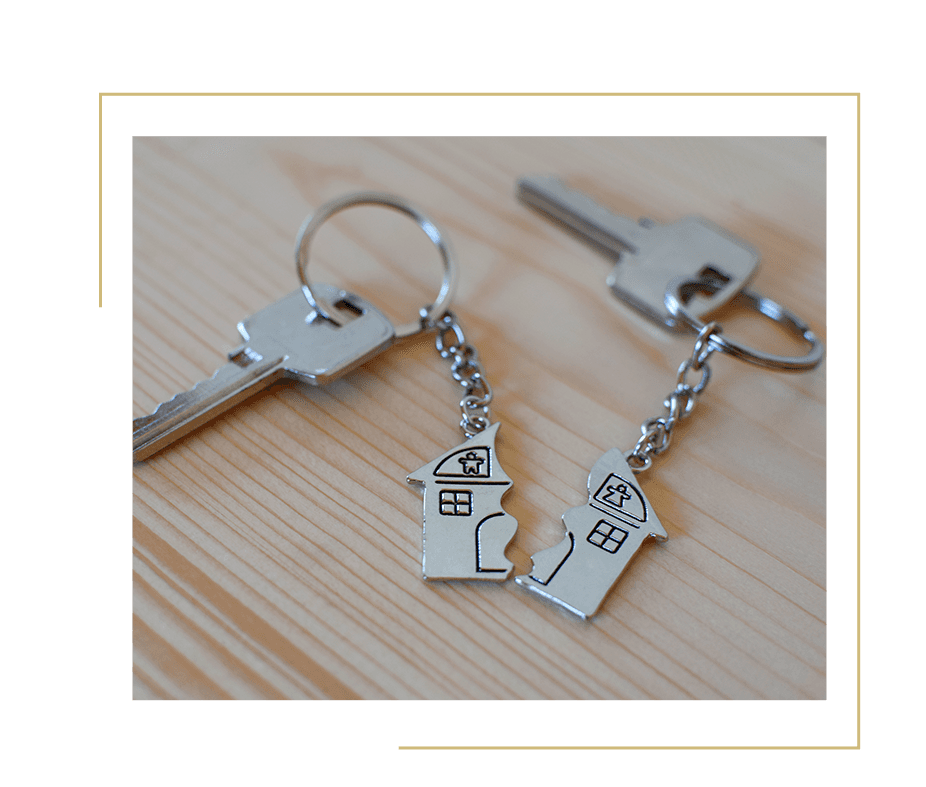
Charlotte Equitable Distribution (Property Division) LAWYER

Charlotte Equitable Distribution Lawyer
Marital Property Division Attorney Serving Mecklenburg, Gaston, Cabarrus, Union & Iredell Counties
How marital assets and property are divided in divorce is often a contentious matter between spouses. This is an issue that can affect your future long after your divorce has been settled. Because of the deep impact property division can have on your financial well-being, it is vital that you have the guidance of a proven divorce attorney who can educate, advise, and represent you at the negotiation table or in court.
At Warren Family Law, we have been representing individuals in divorce and its related issues for more than four decades. Our founding attorney, Jim Warren, offers compassionate guidance and support during the rigors of the divorce process while aggressively pursuing your best interests at every phase of the proceedings. We will work together with you in search of the optimal resolution to your property division matter and any other divorce issues that require representation.
Contact our Charlotte property division lawyer at (704) 741-1763 or via our online request form to book an appointment to discuss your case today.
How is Property Divided in a North Carolina Divorce?
Marital property division in North Carolina falls under the rule of “equitable distribution.” This means that the court will divide marital property and assets as fairly as possible. It does not mean that it will necessarily be an even split. The court will look at many factors relevant to your case to determine what it believes to be fair. These factors can be many and complex, including what each party has contributed to the marriage as well as what their future needs will be.
What Property is Subject to Equitable Distribution?
In order to divide marital property, the first step is to determine what property is actually marital (and divisible) as opposed to what is separate property. Separate property is determined to belong to one spouse only and therefore not subject to division in a divorce. Marital property is any property or asset that was acquired during the course of the marriage and thus shared by both parties.
Marital property can include:
- Homes and other real estate
- Bank accounts
- Stock and bond portfolios
- Vehicles
- Other investments
- Life insurance policies
- Expensive art, jewelry, and collectibles
- Business interests and professional practices
- Pensions
- Retirement accounts
- Deferred compensation earned during the marriage
- Bonuses, commissions, dividends, etc. earned during the marriage but often paid after separation
Separate property is generally any property you acquired prior to marriage that was not commingled into shared marital property. It also includes gifts and inheritances made to you alone while being married.
Equitable distribution also applies to debts. The courts will determine what it believes to be fair in assigning debt repayment to both parties. You and your spouse can control this issue by coming up with a settlement agreement on your own that can be submitted to the court for approval. When unable to agree, it will be up to a judge to decide for you.
Steps Involved in Equitable Distribution
The equitable distribution process generally follows several steps. Each step helps ensure that the division of property is fair and based on the circumstances of the marriage.
- Identify and Classify Property: The first step in equitable distribution is identifying all marital assets and liabilities. This includes everything acquired during the marriage, as well as any separate property. Both spouses are required to provide full disclosure of their assets and debts. A Charlotte property division attorney can help you gather the necessary documents and ensure that your property is classified correctly.
- Valuation of Property: After identifying and classifying the property, the next step is to determine the value of each asset. This is often done through appraisals or other methods of valuation. The goal is to ensure that the division of property is as fair as possible. It is crucial to accurately value each asset, as the court will use this information when determining how to divide the property.
- Determining the Distribution: Once the property is classified and valued, the court will consider several factors to determine how to divide the property. Some of the factors that may influence the distribution include:
- The duration of the marriage
- The financial and non-financial contributions of each spouse
- The needs of each spouse
- The earning capacity of each spouse
- The age and health of each spouse
A Charlotte equitable distribution lawyer will work to advocate for your best interests during this process, ensuring that the distribution is as fair as possible based on these and other relevant factors.
Dealing with Complex Assets in Property Division
Property division becomes particularly complicated when dealing with complex assets such as business interests, real estate holdings, retirement accounts, or investments. These assets may require professional evaluations, and the division process might involve more intricate negotiations.
- Business Interests: If one or both spouses own a business, determining its value and deciding how to divide it can be a challenging aspect of property division. Whether the business was started before or during the marriage, it is important to properly assess its value and decide how to fairly allocate the ownership interest.
- Retirement Accounts: Dividing retirement accounts such as 401(k)s, pensions, and IRAs is another complex aspect of equitable distribution. These accounts typically require the use of a Qualified Domestic Relations Order (QDRO) to divide the funds between spouses. A Charlotte property division attorney can guide you through this process and help ensure the proper steps are taken to divide these accounts.
- Real Estate: If the couple owns multiple properties, such as a primary residence, vacation homes, or rental properties, determining how to divide them can also be challenging. The court may decide to sell the property and divide the proceeds or award one spouse the property with an offset to the other spouse.
The experience of a Charlotte equitable distribution lawyer is crucial in handling these complex assets and ensuring that the division is done properly.
Negotiating Property Division
It is important to understand that equitable distribution does not always have to be settled in court. Many divorcing couples choose to negotiate a property settlement outside of court, either through direct negotiations or with the assistance of a mediator. Negotiating a property division agreement allows both spouses to have more control over the outcome, and it can be a less contentious and expensive process than litigation.
A Charlotte equitable distribution lawyer can help facilitate these negotiations, ensuring that your interests are well-represented and that the agreement is fair. In some cases, it may be necessary to go to court to resolve disputed issues, but having a lawyer who is experienced in property division can make a significant difference in achieving a fair and equitable resolution.
Prenuptial Agreements and Property Division
A prenuptial agreement, often referred to as a "prenup," is a legal contract signed by two individuals before marriage that sets forth the division of assets and debts in the event of a divorce or death. These agreements are designed to protect the interests of one or both spouses by clearly specifying what property is considered separate and what is considered marital property.
In North Carolina, prenuptial agreements can have a significant impact on property division. If a prenup is in place, the court is generally bound by its terms when it comes to dividing property, unless there are valid reasons to invalidate the agreement such as fraud, duress, or lack of proper disclosure..
Why Choose Our Equitable Distribution Lawyer for Your Property Division in Charlotte
Property division in a divorce can be one of the most contentious and complex aspects of the entire process. The outcome of your property division can have long-lasting financial implications, which is why having an experienced Charlotte property division attorney is essential. At our firm, we will help you understand your rights, guide you through the legal process, and advocate for your best interests.
Whether you are facing a simple division of assets or a more complex property dispute, having the right legal representation can make all the difference in achieving a favorable outcome. A Charlotte equitable distribution lawyer can work to ensure that you receive a fair share of the marital property and that the division process is handled efficiently and effectively.
Need guidance or representation in your divorce? Schedule a consultation with our Charlotte equitable distribution attorney by contacting Warren Family Law online or at (704) 741-1763.


-
“BEST Family Law attorney, by far. I've known Mr. Warren since the mid 90's and would use no other in a Divorce situation. EXTREMELY professional and will fight for you, all the way.” - Greg H.
-
“Won my case with the upmost professionalism and toughness. I would recommend James to anyone dealing with a custody and/or child support issue. Fantastic!!!” - Mary B.
-
“Mr. Warren is an excellent attorney to have in your corner from the beginning all the way until the end of settlements. I personally had a previous subpar attorney before retaining Mr. Warren. Thankfully I retained his services.” - Joel

